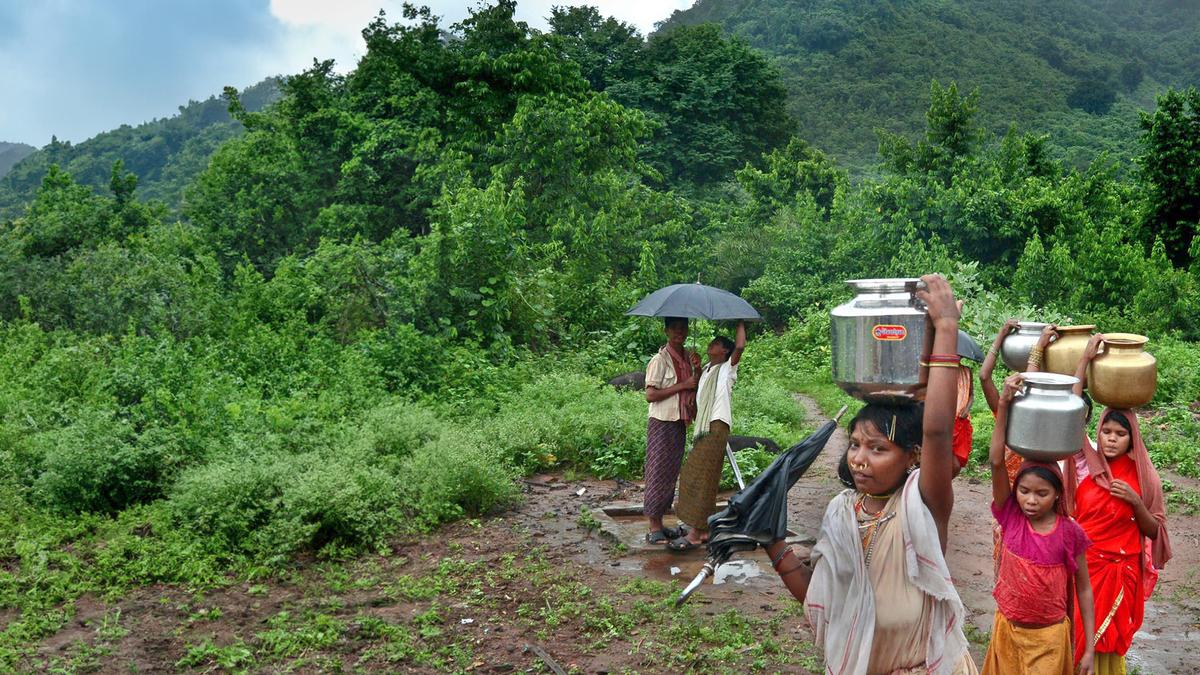
Resentment brewing in Odisha’s Rayagada over bauxite mining proposals
The Hindu
Resentment brews in Rayagada, Odisha over bauxite mining projects. Villagers, activists up in arms against proposals; nine arrested under UAPA. Goldman Prize winner Prafulla Samantara whisked away by police.
Resentment is brewing in Odisha’s Rayagada district as villagers have started coming together over the issue of bauxite mining projects.
Four bauxite mines, including those proposed for development, are situated within a distance of 80 kilometres while close to 100 villagers are up in arms against mining proposals. Alleged indiscriminate arrests of villagers and activists have made the matter worse. While Baphlimali and Kodingamali mines are presently operational, the ones in Kutrumali and Sijimali mines are yet to be developed.
According to Ganatantrik Adhikar Suraksha Sangathan (GASS), Odisha, a forum of rights activists, Rayagada Police picked up two members of Niyamgiri Surakshya Samiti on August 5 while two office-bearers of the Mali Parvat Suraksha Samiti were arrested on August 23. About nine activists were arrested under the Unlawful Activities (Prevention) Amendment (UAPA) Act, 2008.
“We strongly condemn these anti-people policies of the governments, the police brutality and slapping UAPA and Arms Act on people. These atrocities are carried out in order to squeeze the democratic space,” said Deba Ranjan, general secretary of GASS.
The incident where Prafulla Samantara, Goldman Environmental Prize winner, was whisked away from Rayagada on August 29, however, raised eyebrows in several quarters.
“I was scheduled to address a press conference at Rayagada at 4 pm on August 29. Prior to that police came to my hotel, took me away like me being a hardcore criminal and dropped me in Berhampur about 200 km from the spot,” said Mr. Samantra.
“Top corporate houses including Vedanta Group and Adani Group have been allotted bauxite mines in Rayagada. The State government suspects if people are allowed to unite and ask questions about legality of handing over mines, the situation might go out of control. The government wants to suppress movement from the beginning,” he alleged.

“Writing, in general, is a very solitary process,” says Yauvanika Chopra, Associate Director at The New India Foundation (NIF), which, earlier this year, announced the 12th edition of its NIF Book Fellowships for research and scholarship about Indian history after Independence. While authors, in general, are built for it, it can still get very lonely, says Chopra, pointing out that the fellowship’s community support is as valuable as the monetary benefits it offers. “There is a solid community of NIF fellows, trustees, language experts, jury members, all of whom are incredibly competent,” she says. “They really help make authors feel supported from manuscript to publication, so you never feel like you’re struggling through isolation.”

Several principals of government and private schools in Delhi on Tuesday said the Directorate of Education (DoE) circular from a day earlier, directing schools to conduct classes in ‘hybrid’ mode, had caused confusion regarding day-to-day operations as they did not know how many students would return to school from Wednesday and how would teachers instruct in two modes — online and in person — at once. The DoE circular on Monday had also stated that the option to “exercise online mode of education, wherever available, shall vest with the students and their guardians”. Several schoolteachers also expressed confusion regarding the DoE order. A government schoolteacher said he was unsure of how to cope with the resumption of physical classes, given that the order directing government offices to ensure that 50% of the employees work from home is still in place. On Monday, the Commission for Air Quality Management in the National Capital Region and Adjoining Areas (CAQM) had, on the orders of the Supreme Court, directed schools in Delhi-NCR to shift classes to the hybrid mode, following which the DoE had issued the circular. The court had urged the Centre’s pollution watchdog to consider restarting physical classes due to many students missing out on the mid-day meals and lacking the necessary means to attend classes online. The CAQM had, on November 20, asked schools in Delhi-NCR to shift to the online mode of teaching.









